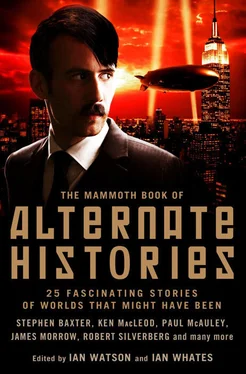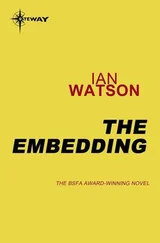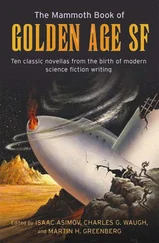“So,” Absalom grunted, feeling the arrowhead shift against his ribs, “there’s a lot of that about.”
“No,” said the madman, eyes like candle flames, “I’m really dying.”
Absalom coughed, bringing up blood. The arrow had dimpled one of his lungs, and he was slowly drowning, he supposed, his blood filling up his lungs. He knew more about doctoring than the barber-surgeons who occasionally came round to see what they could do for the wounded. As a soldier, he was more than familiar with the many ways a man could die.
He tried to remember whether he had seen the madman before, up on the walls of Rome, maybe defending one of the gates. Now, he was bearded and scrawny, his hands pressed on the yellow rag he held to his liver, trying to keep his insides in. His armour and weapons were long gone, passed on to a healthier defender.
“It’s the end of time,” he said. “What date is it?”
“The second day of Tammuz.”
“No,” the madman coughed, “the year? I’ve forgotten.”
Absalom knew his One True Testament. “It’s 4759,” he said. “4759 years since the creation of the world. It’s not the end of time at all. The Messiah has not come.”
The madman grimaced, painfully. Absalom realized he really was mad. Twenty-two years of soldiering, and he would die a forgotten hero with only a lunatic for company.
“Even if Rome falls, it will not be the end of time. The Chosen People will endure.”
The madman began to choke, and Absalom thought he was about to pass away, but his coughs changed, turned to bitter laughter. He was beyond pain, beyond everything.
“The Chosen People,” he said, “the Chosen People…”
Outside the walls, the Persians were gathered, half-heartedly building their earthen ramps to the edge of the city, barely bothering to launch attacks with their huge wooden siege-towers any more. They were catapulting rocks and corpses into the city, and firing rains of arrows, but mainly they waited for starvation and disease to do their job for them. At first, Shah Yzdkrt, known as Yzdkrt the Flayer, had decreed that all Gentiles would be allowed to pass unharmed through the besieging ranks and, after paying a small tribute, be allowed on their way. But the rumour was that those citizens foolhardy enough to believe him had been meekly led to a glade on the Tevere and slaughtered, their bodies dumped into the river in an attempt to poison the city’s water supply. Two months ago, rabbi Judah, a good and humble merchant well known for his charitable works, was sent out to parley with the Persians, taking with him gifts for Yzdkrt and a message of peace from the Emperor. Yzdkrt had him slowly stripped of his skin, and his hide was stretched out on the ground before the main gate as a reminder to the besieged Romans of the fate the Shah had set aside for them all.
Governor David Cohen was ruthlessly enforcing siege regulations on the populace, military and civilian. Soldiers were on half-rations, all others on quarter-rations. Absalom heard that anyone who used water for washing was being put to death. Certainly, no one had offered to clean his wounds, with the result that even if he didn’t drown he’d be eaten up by the mange spreading from the cuts on his body. The wounded were being stacked up in the catacombs, out of sight, but it was impossible to silence their screams. When he had been on patrol up above, everyone had been spooked by the groans coming from under the earth. Now he was with the groaners, and he thought he had a foretaste of Hell. There were a few lamps, but it was mainly gloomy, and some straw had been spread to lie on, but it was filthy with blood and shit. Latrines had been dug, but most of the wounded were unable to get to them without help, and there was no one to help. The tunnels were trickling with sewage.
A few of the more zealous or compassionate rabbis left their other trades or duties and ventured into the catacombs to comfort the dying. Absalom could always hear the low mumble of the kaddish under the screaming.
Rumours were the only entertainment the dying had. Absalom received the rumours from Isaac bar-Samuel to his left and passed them on to the madman as they came his way. It was rumoured that Governor Cohen was expecting an army of relief directly from the North, led by the Emperor in person; that the plague raging in the city had spread to the Persians, and that Yzdkrt himself had succumbed; that the men of Rome, no matter how young or old, were used up, and that the women were being impressed to bear arms against the Zoroastrian unbeliever. The madman took it all lightly, laughing as the yellow stain spread up his side.
The rats would have been a problem, only Governor Cohen had organized gangs of children to hunt them for food. The shochets were setting aside the dictates of kashrut and learning to make do with rodent meat. In the catacombs, where any animal that got within reach of a man deserved the swift death it inevitably got, even the niceties of butchering were being ignored. Raw ratmeat was tough, but chewing something helped lessen the pain.
A new rumour came down from Isaac. Above, it was noontime, but the sky was dark. The sun had been blotted out, and a peculiar sign was visible in the sky, an upright cross, like the skeleton of a kite, stood out in fire against the black. The rabbis and scholars were arguing its significance, and no one could tell whether the sign was meant for the Chosen People inside the walls or the infidel beyond.
Absalom told the madman, and, for the first time, got a reaction out of him.
“It has come. It is time. One thousand years.”
“What’s the babbling idiot talking about?” Isaac asked.
Absalom shrugged, feeling a stabbing under his arm as his broken bones shifted.
“I don’t know. He’s mad.”
There was a lot of that about too.
“No,” the madman said, “listen…”
It was quieter than usual. The dying were calming down.
A rabbi scuttled around the corner, bent over by the low roof. He was hardly more than a boy, his beard still thin and wispy. His robes were full of tears, each rip a ritual sign of grief for a dying man he had attended. All the rabbis in the city were looking like beggars these days.
“Hear me,” the madman said, “hear my confession…”
“What, what,” said the rabbi, “confession, what’s this, what’s this?”
“Is it true about the sky?” Absalom asked.
“Yes,” said the rabbi, “a rain of blood has fallen, and a lamb with a glowing heart has been seen in the clouds. Most significant.”
“Of course, of course,” said the madman. “He has returned. It was prophesied.”
“I don’t know what you’re talking about,” said the rabbi, “I know all the prophecies by heart, and this is without precedent.”
“Hear me out.”
There was something about the man that persuaded the rabbi. Absalom was interested too, and Isaac. A few of the others, dim shapes in the dark, pulled themselves nearer. The madman seemed to glow. His pain was forgotten, and he let the rag fall away from his festering wound. It was a bad one. Absalom could see into the man’s entrails, and could tell they were not healthy. It must have been a sword stroke at one of the gate skirmishes that had done for him. But the madman did not feel the hurt any more. He sat up, and, as he spoke, his eyes glowed brighter.
My name is Joseph. I was born in Judaea a thousand years ago. No, I’m not mad. Well, maybe I am. A thousand years, a thousand deaths, would send anyone mad. Whatever, I’m a thousand years old.
When I was born, Judaea was ruled by the old Roman Empire. Romans were accustomed to being welcomed, or at least tolerated, as wise and beneficent rulers throughout their imperial domain. But they could never persuade the Judaeans to accept their rule and there was always a revolt going against them. The biggest of these, led by Judas of Galilee, was against a poll tax the Romans imposed. It was suppressed with efficient brutality. But the Romans never broke the spirit of the Jewish people, the Chosen People.
Читать дальше












